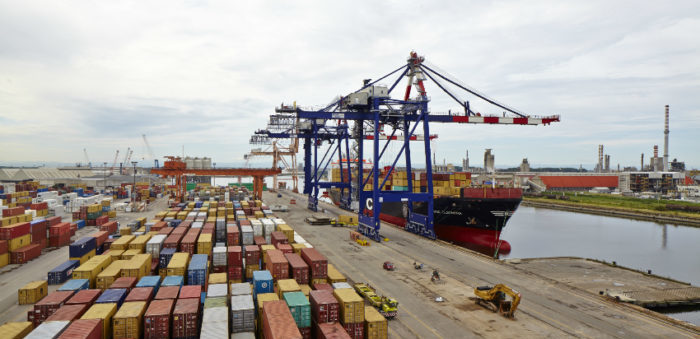The European Sea Ports Organisation (ESPO) issued a statement supporting the upcoming European Parliament discussion on the Clean Industrial Deal (CID), welcomed the ITRE Resolution adopted on 3 June 2025 and has made recommendations regarding the main challenges at Europe’s ports.
ESPO in its statement, has highlighted the importance of combining decarbonisation with competitiveness, streamlining permitting and boosting energy infrastructure. Ports play a critical role as multimodal trade hubs, key energy suppliers and partners in the energy transition and industrial decarbonisation.
More specifically, ESPO in a position paper pointed out how implementing the Clean Industrial Deal requires significant investment in port infrastructure, including the need for an accelerated permitting regime and sufficient space to accommodate new activities.
As ports play an increasingly important role in the decarbonisation of industry and the energy transition, upcoming discussions on electricity grid developments must take this into account. Robust funding is essential to support pioneering clean energy and industry projects, both for innovation and scaling up.
Additionally, facilitating hydrogen imports and relaxing rules on Renewable Fuels of Non-Biological Origin (RFNBOs) during the transition phase are critical. Regulatory barriers hindering circular economy projects in ports must also be addressed and measures to simplify bureaucracy and prevent overreporting should be implemented as soon as possible.
Summary of the ESPO recommendations:
- Driving the growth and decarbonisation of European industries requires support and further deployment of port infrastructure and supply chains to serve these industries and transport their products.
- Port areas should be considered as Net Zero Acceleration Valleys under the Net Zero Industry Act to accelerate permitting. Temporary construction emissions should be offset against final environmental gains in permitting.
- Additional space needs in ports should be reflected in spatial planning regulations.
- The EU Grid Package should grant ports priority access to the distribution/transmission grid and ensure significant investments in updating and expanding grid capacity. Network investment plans should allow flexibility and anticipatory investments, with tariff methodologies facilitating these investments.
- Port policy, energy policy, and funding need better alignment to enable ports to fully support decarbonisation and the energy transition, considering port diversity.
- Robust funding is needed to cover gaps; the Innovation Fund should support scaling up new and existing technologies, with funding schemes made transparent, predictable, flexible, accessible, and less administratively burdensome.
- Efforts to boost hydrogen production and consumption in the EU should recognize and support the need to import renewable hydrogen.
- Requirements on renewable or clean hydrogen and CO₂ to produce RFNBOs should be relaxed during the transition period.
- The planned Circular Economy Act should remove regulatory barriers causing inefficiencies and dysfunction in the recycled raw materials market.
- Simplification measures are welcomed and should be finalized quickly to avoid regulatory uncertainty around new measures.
- New legislation and adaptation measures should not impose additional obligations or constraints on ports.
Boosting the clean industry in Europe implies developing the necessary supply chains that are needed to link production and consumption sites, developing port and connectivity infrastructure and adapting those to the needs of these industries. It is also important to consider the role and added value of the many ports in Europe which cluster industries or are the gateway for these industries.
…said Isabelle Ryckbost, Secretary General, ESPO.
Furthermore, Ryckbost highlighted that space, complex and lengthy permitting procedures and electricity grid congestion are just a few of the challenges to be addressed and expressed hope that the role and corresponding needs of ports are being looked at when the Clean Industrial Deal ambitions are being further developed.

































































